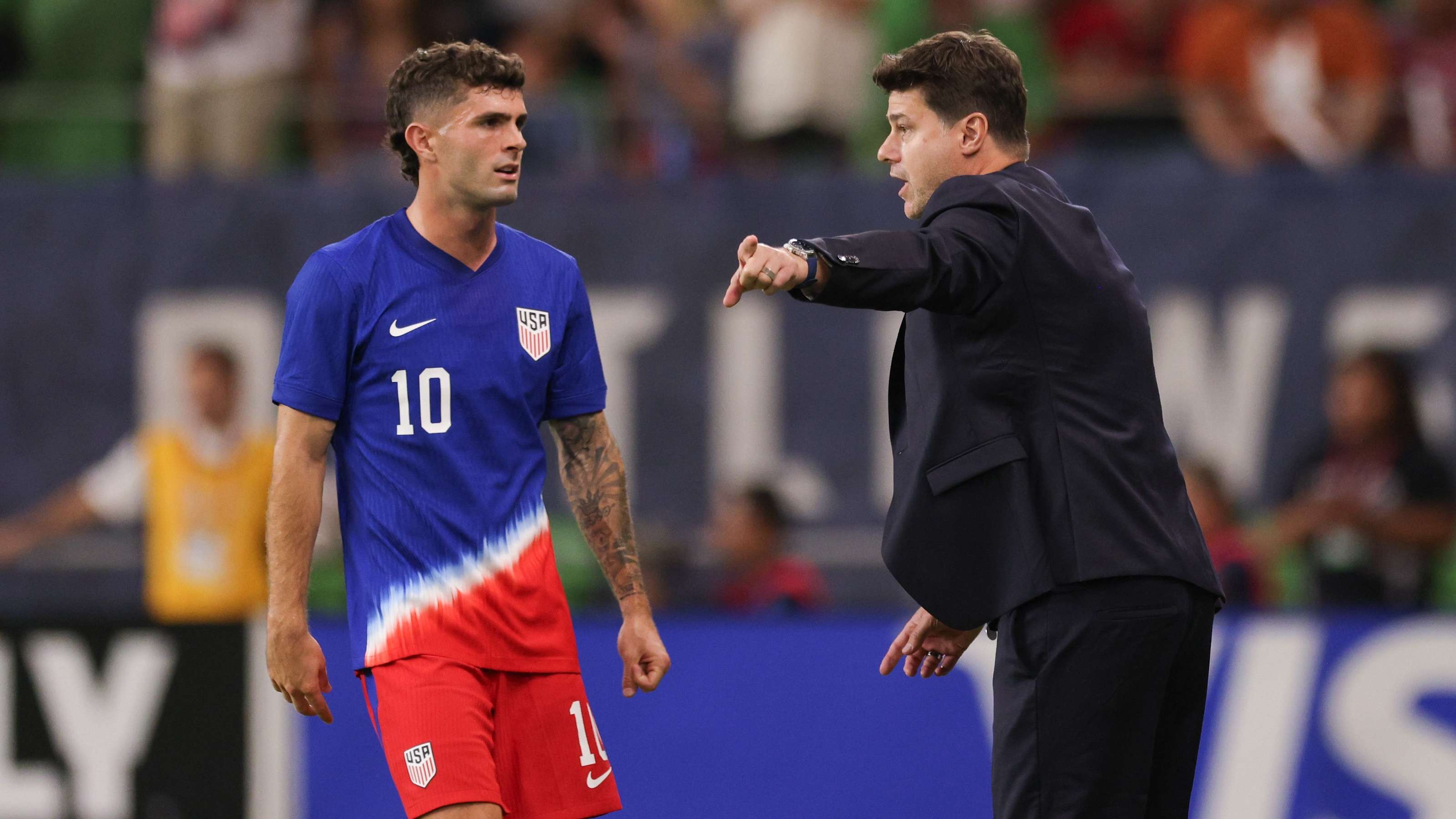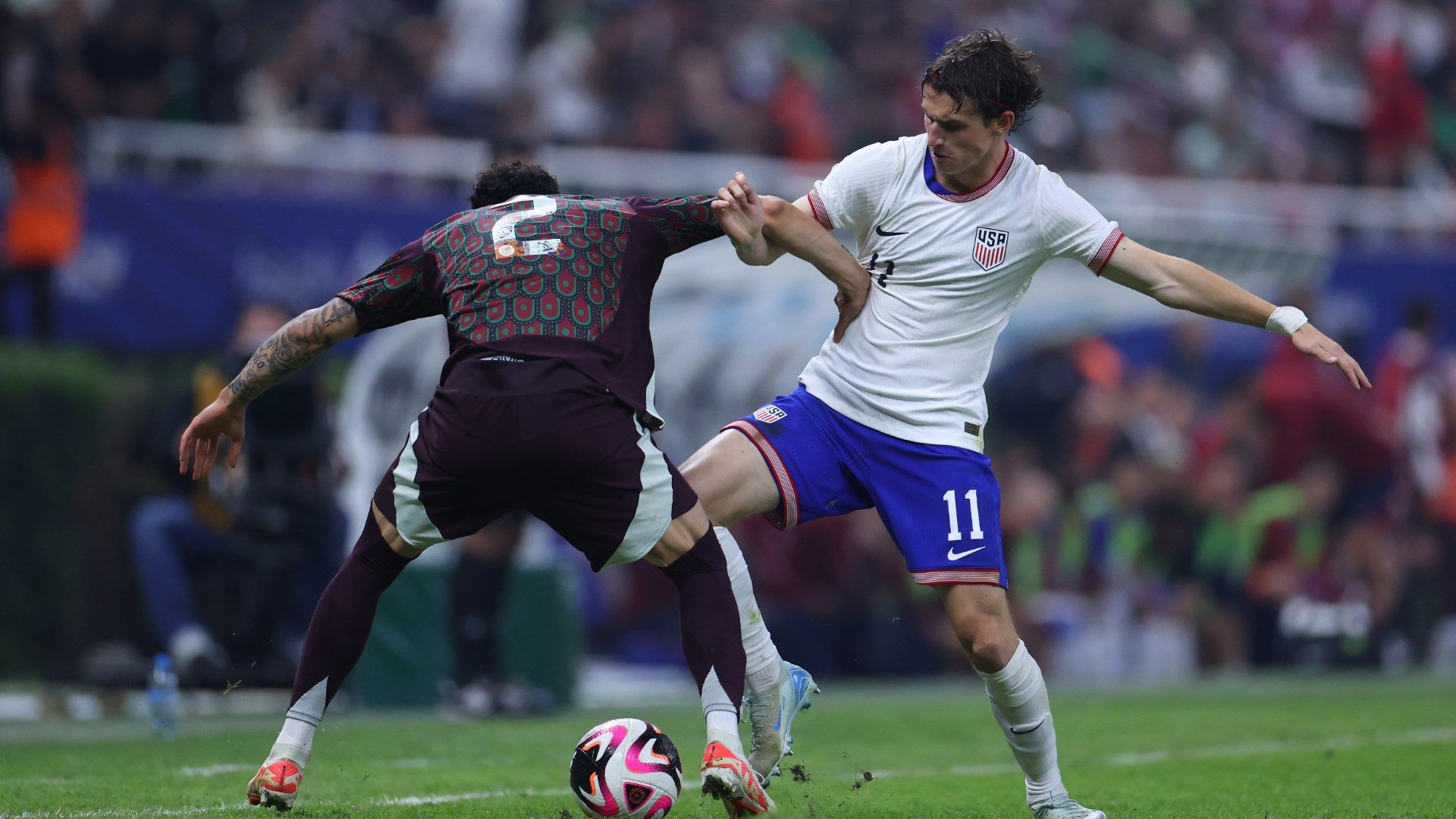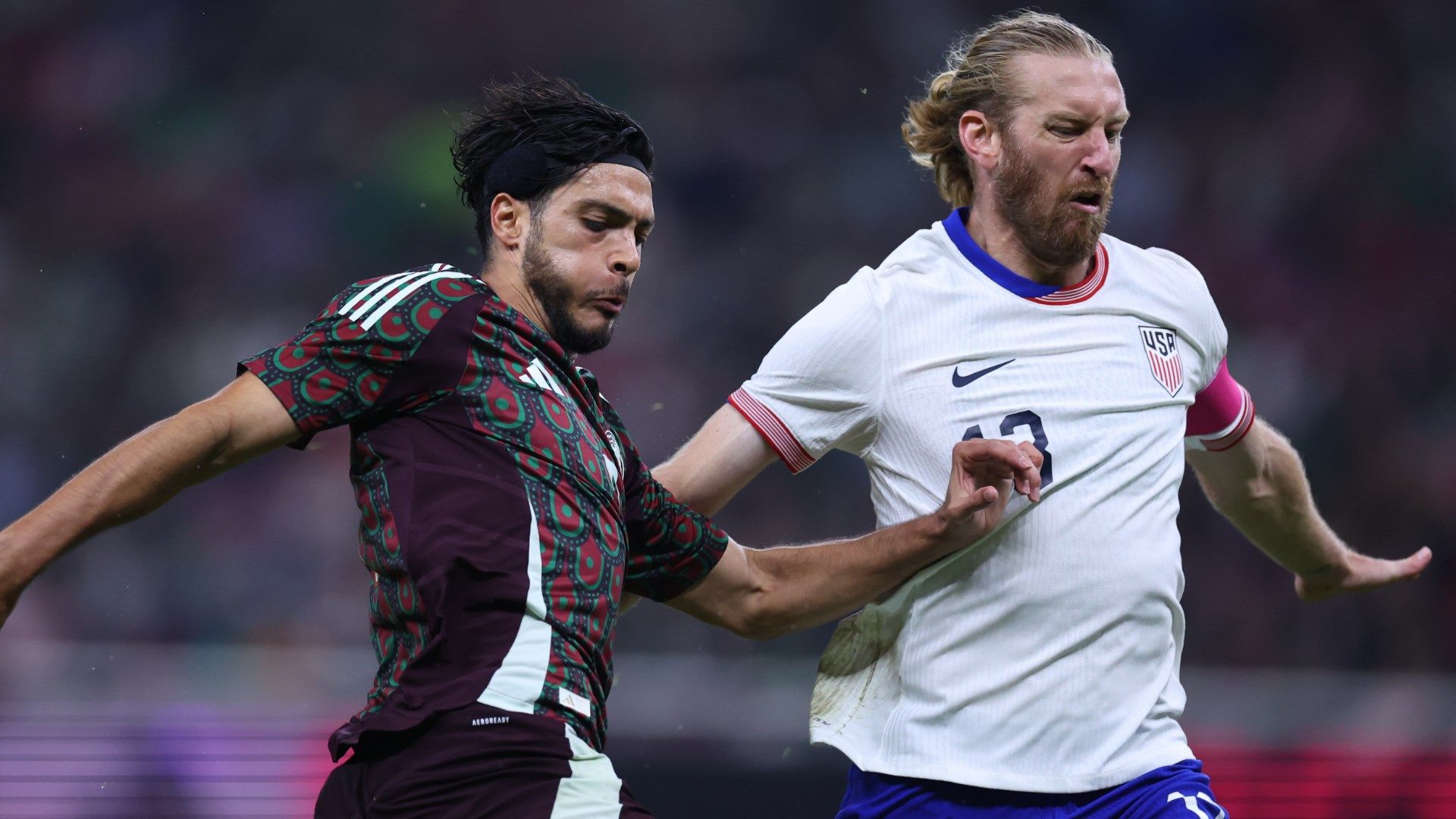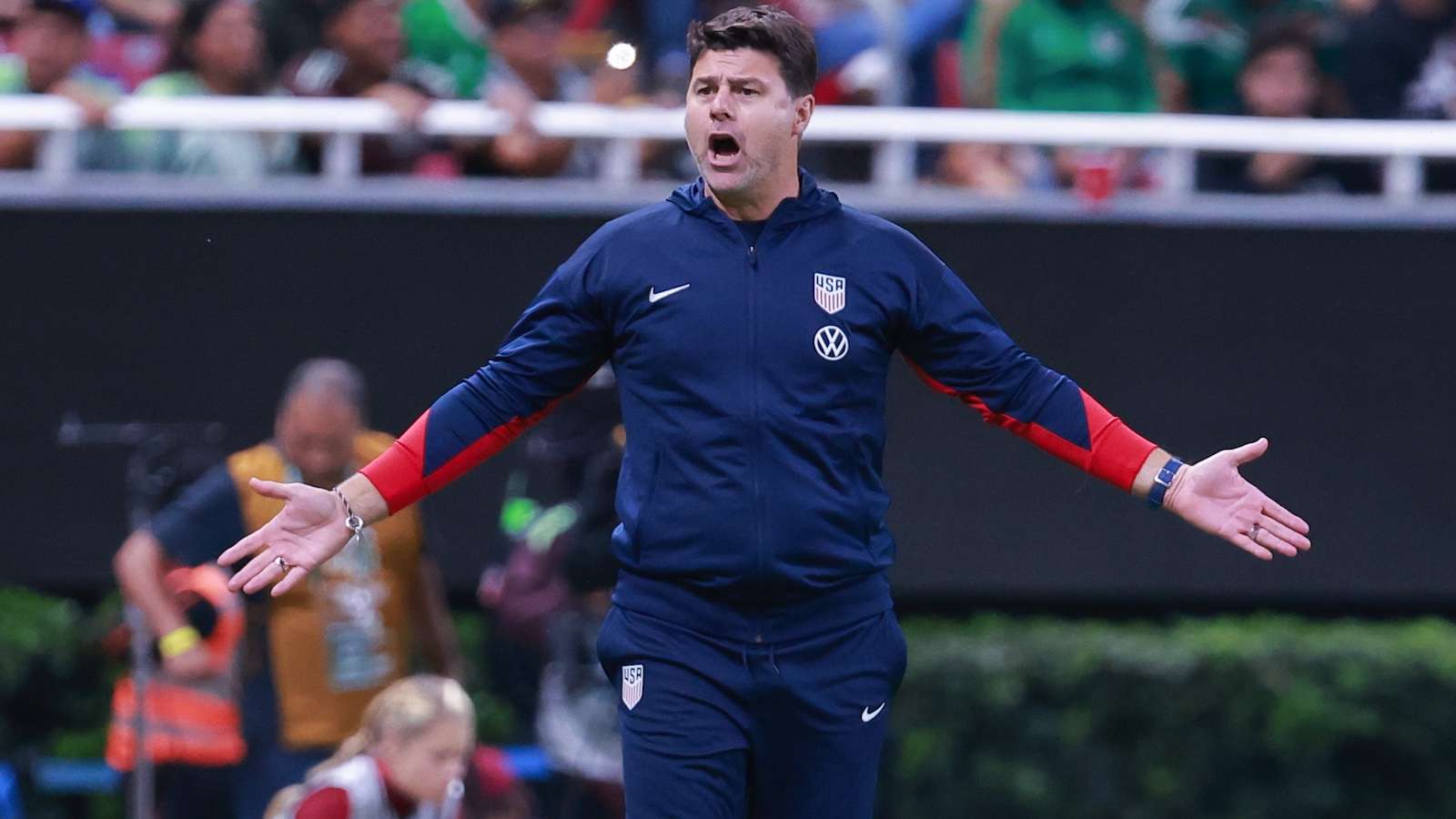


FAST DOWNLOAD
GUADALAJARA, Mexico – Despite the resounding thud in which his first camp concluded, Mauricio Pochettino cracked a smile at a few points following the U.S. men’s national team’s loss to Mexico Tuesday night. He was frustrated, yes. he was disappointed in a 2-0 result that was always one-way, one that also snapped the USMNT’s seven-game unbeaten streak against their CONCACAF rivals.
As a coach, though, he could take some pleasure in it. Well, if not pleasure, then at least he unearthed the upside. They say you learn more from losses than you do wins, and Pochettino got one of each in his first window.
“For me, it feels great to them to compete because the circumstances were tough for us,” he said after the match, “but I feel so happy with everyone that was involved…I’m happy. Of course, it was good to see players compete and we can only learn from it.
“We lose, of course, in Mexico. We wanted to win, but, this type of game – we need to play more games like this to improve.”
Despite the Mexico result – which, in fairness, featured a U.S. side depleted by injuries and players released back to their clubs, including the likes of Christian Pulisic and Weston McKennie – the USMNT did show positive signs in their 2-0 opening win against Panama.
It’s only been 10 days since Pochettino first gathered his inaugural U.S. squad in Austin, Texas, so it’s understandable that he hasn’t fully put his stamp on this team. Even so, there were signs of optimism in that first game. This camp had it’s share of both dark clouds and silver linings.
What did we learn from this first window? What will Pochettino take away from his first camp in charge of the USMNT? GOAL takes a look.

























































.jpg?auto=webp&format=pjpg&width=3840&quality=60)
.jpg?auto=webp&format=pjpg&width=3840&quality=60)
